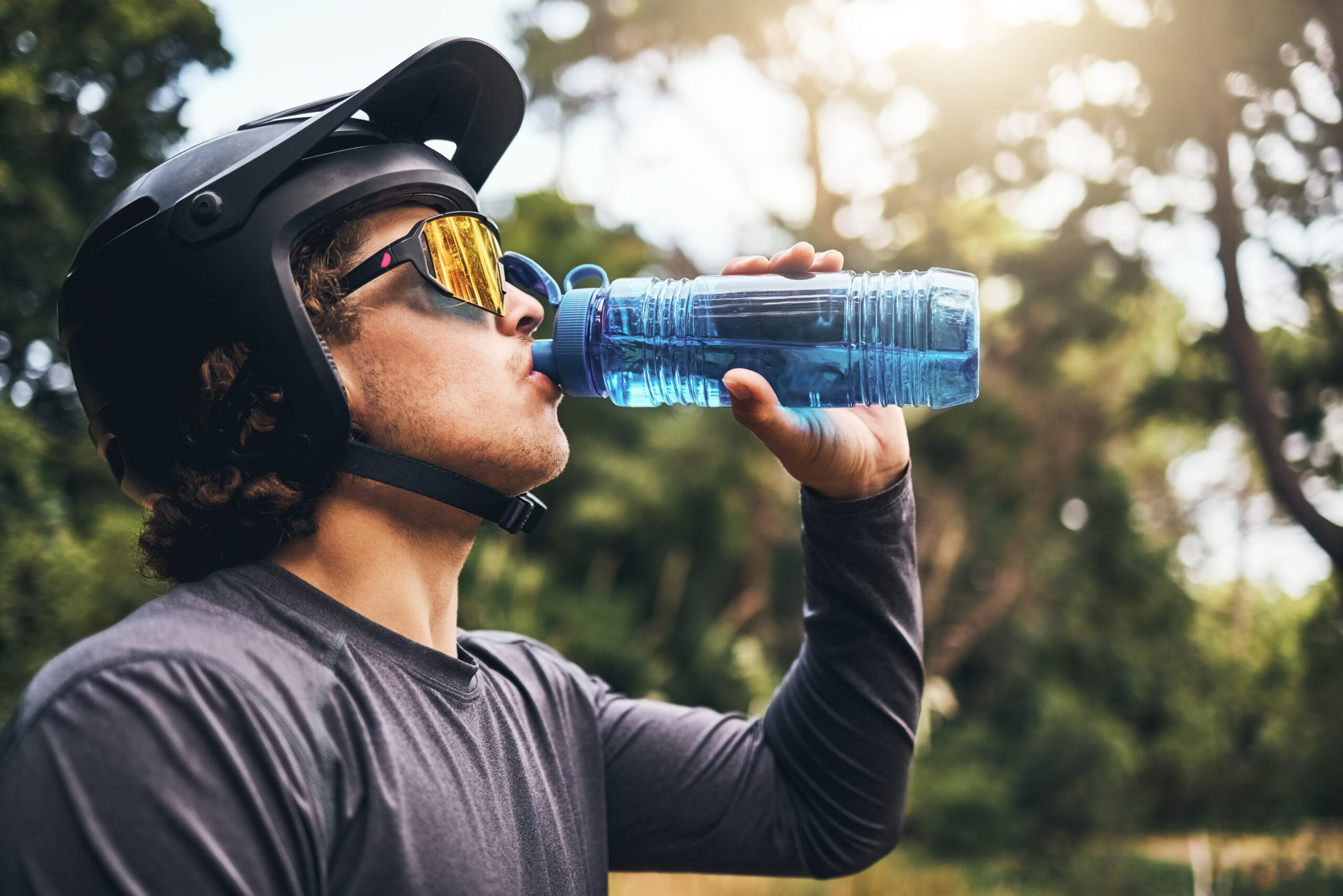Here in Toronto, people love to work out. Our neighbourhood at Yonge and Eglinton has dozens of public and private gyms, yoga and Pilates studios, outdoor parks, and other places where residents love to get fit and stay healthy.
We believe that taking care of your body is as important as having healthy teeth and gums—after all, fitness and dental health go hand in hand! However, working out without the proper approach can actually lead to tooth decay and cavities.
How fitness routines can impact dental health
Dental injury
Many people play contact sports to stay healthy, but balls, bats, pucks, elbows, hands, and feet can damage teeth when they make blunt force contact with your mouth. Have a look at any old team picture of the Toronto Maple Leafs—half of them are missing multiple teeth for a reason!
You can also chip, crack, or knock out a tooth from other non-contact activities such as bicycling, snowboarding, skiing, and skateboarding.
Grinding your teeth
Bruxism, also known as teeth grinding, is common among people as a response to stress. However, weight training exercises such as squats or deadlifts can also trigger bruxism. The strain you exert from lifting a heavy weight can cause you to clench or grind your teeth, increasing the risk of developing chips, cracks, holes, or fractures in them.
Grinding your teeth can also put tremendous pressure on your teeth and jaw joints, wear down tooth enamel, and lead to gum recession.
Tooth decay from sports drinks and energy bars
It is critical to stay hydrated during a workout, but sports drinks are not the best option. While they may provide a replenishment of electrolytes, they are often laden with sugar and are highly acidic. Neither of these properties is good for your teeth, as they can impact your tooth enamel and lead to tooth decay.
Similarly, many energy bars contain sugar and are very sticky. Their particles tend to stick to teeth, creating an environment in which tooth decay-causing bacteria can thrive, increasing the risk of cavities.
Dry mouth
“Keep breathing”—it is what every personal trainer tells you. However, how you breathe is just as important as breathing itself. Many people tend to breathe through their mouths, especially when jogging. Mouth breathing is another risk to teeth as it reduces saliva flow and causes the mouth to dry up. Saliva production is critical to flushing out food particles that can cause bacterial growth, promoting tooth decay and cavities.
Tips for protecting your teeth during workouts
Now that we know how working out can impact your dental health, here are some tips for protecting your teeth during workouts.
Wear a mouthguard
There is a reason your favourite competitive athletes wear mouthguards: they protect their teeth from injury or being knocked out. Whether you are on a rink, field, ring, slope, or court, mouthguards protect your teeth from injury if you get hit in the face or head.
Mouthguards are also great when weight training, as they prevent damage to your teeth from clenching or grinding against each other when moving heavy weights. They make the perfect complement to your knee sleeves or weight-lifting belts that help protect other parts of your body from injury.
We recommend seeing your dental team to have a custom mouthguard made, as it will provide much better protection than a one-size-fits-all option from your local sports store.
Solve workout hydration with water
You should drink water throughout the day, but especially during workouts, as your body dehydrates faster through sweating. Drink water every 10 – 15 minutes while exercising or playing sports to stay hydrated, keep producing saliva, and prevent dry mouth.
Snack well for extra energy
Sugary, sticky energy bars are fast and convenient but also detrimental to your oral health. Instead, try one or more of these options that will give you energy without increasing your risk of tooth decay and cavities:
- A banana, an apple or other fresh fruit
- Yogurt
- A fruit smoothie
- Peanut or almond butter
Breathe through your nose
This one might be easier said than done, as many people do not think about how they breathe while concentrating on their performance while working out. If you cannot make the switch to nose breathing, drink plenty of water to prevent dry mouth while exercising.
Take out your retainer during high-impact sports
Although retainers are designed to be worn comfortably throughout the day, even during low-impact exercise such as walking, cycling, or swimming, removing it may be a good idea when participating in contact sports. Your retainer may become damaged if you are struck in the face or if it pops out.
A damaged retainer could stop your teeth-straightening progress, so be sure to store it safely and put it back in your mouth once done with your high-impact activity.
Balancing fitness and oral care
Physical fitness is crucial to good overall health and the well-being of teeth and gums, as long as you follow the above steps to minimize the risks of tooth injury, tooth decay, and cavities.
Be sure to also stick to a regular oral hygiene routine that includes brushing twice daily and flossing once daily. Additionally, visit your dentist every six months for a regular dental examination and cleaning. Together, you and your dental team can ensure you have healthy teeth and gums and a bright, beautiful smile to show the world with every new physical fitness goal you achieve!
Learn more about protecting your teeth during workouts from the dental health experts at Yonge Eglinton Dental in Toronto
Before hitting the gym or getting involved in contact sports, talk to our dental health team about how you can protect your teeth while exercising. Make an appointment for an office visit today by calling our office at 416-932-2222 or booking online. We look forward to seeing you!
Are you concerned about visiting the dentist?Read about how we protectthe health and safety of our patients and staff so your family can seek proper dental care with peace of mind.








